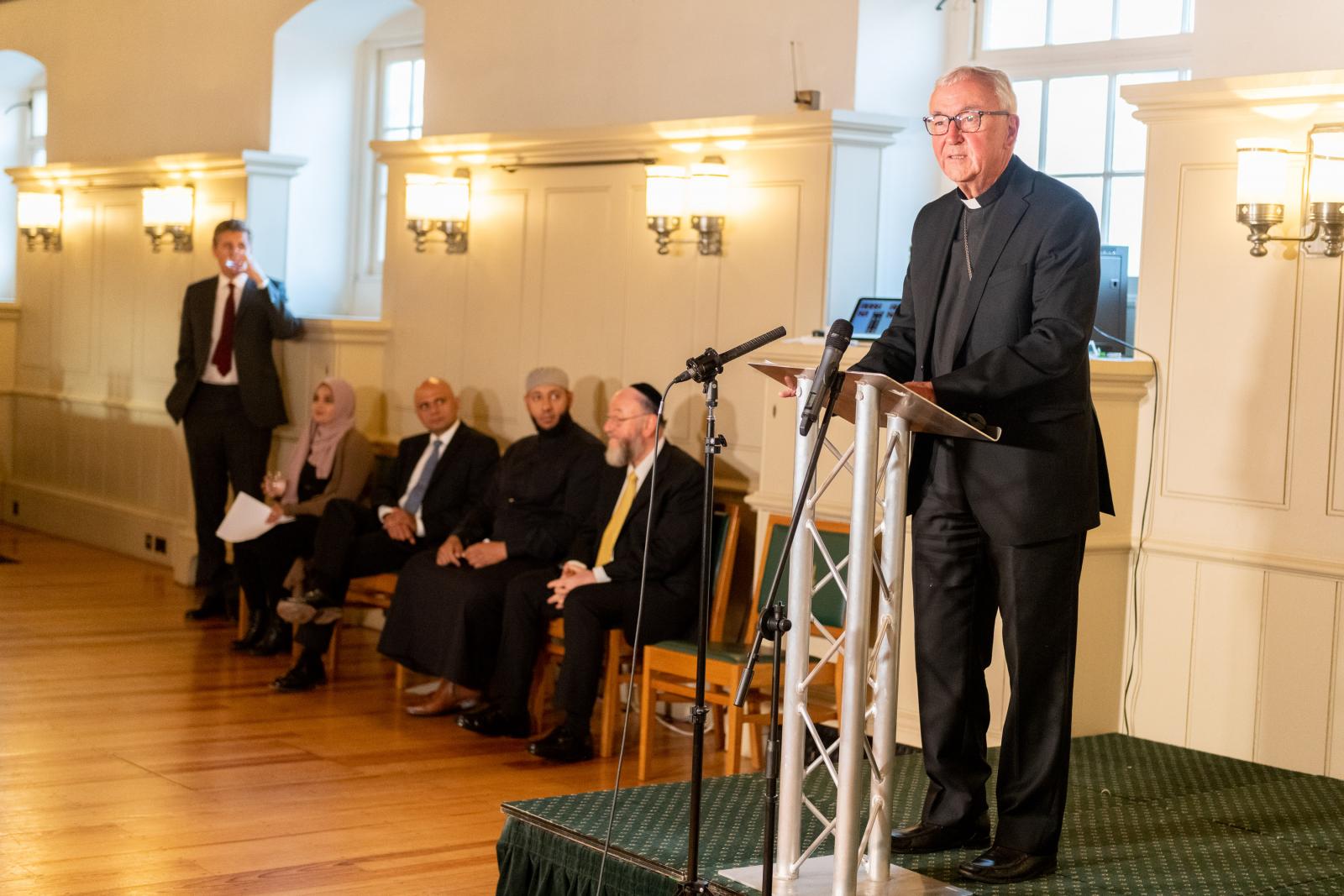Address given during an interfaith event organised by the Naz Legacy Foundation at the Tower of London on 2nd September 2021.
The Tower of London: a name and a place full of resonances and a wonderful setting for this event. Thanks to the Naz Legacy Foundation for bringing us together and to this place.
The Tower of London is a symbol of power and its application. It was built as the Tower of a Conqueror, and for centuries upheld the ruling power and protected its treasures.
Its full title is Her Majesty’s Royal Palace and Fortress of the Tower, a title which reminds us that in this reign of Her Majesty Queen Elizabeth II, royal power is exercised in a very different way. Indeed, the example given to us all by Her Majesty is summed up in two words, central to this event: service and faith in God. No-one can fail to be struck by the remarkable example given by our Monarch of a lifetime of service, nor can her eloquence and persistence in speaking about her faith be sidelined.
This evening is our opportunity to salute and thank so many people for the steadfast, quiet and, at times, heroic service given in every community in this land during the pandemic which has so shaped our lives. Most of that service has gone unsung. It has been freely given and gratefully received by those in need. It consists in countless, simple acts of kindness as well as well-coordinated community efforts to alleviate loneliness, to combat stress and fatigue and ensure practical help to so many.
This evening is also our opportunity to appreciate the role of faith in the lives of so many people in underpinning this service. I believe there has been an increasing recognition of the role of our faith communities in the long struggle against the pandemic. Indeed, our communities are also emerging as significant contributors to the ways in which we meet the challenges of people arriving here from Afghanistan. Faith in God fashions who we are; it deepens the motivation to serve; it helps us to understand that whatever strength and resources we possess are best used in service.
What is the hidden imperative of faith in God?
Allow me a brief story from further back in the history of this country than even 1067 and the building of this Tower.
At Eastertime in 628, King Edwin, of the Kingdom of Northumbria, embraced the Christian faith. He had just escaped an assassination attempt, and witnessed the safe birth of his daughter. He was deeply affected by these events and his heart was full of questions. When consulted, one of his councillors explained to him that a human life is like a sparrow flying thorough a banqueting hall during a winter night. The sparrow flies in, out of a storm, enjoys the comforting warmth of the hall and the splendour of life that it contains, and then flies out again into the darkness. Such is our life on earth. So then Edwin’s heart sought the answer that could explain to him from whence came that sparrow and what was its destiny. What lay beyond the darkness, or was life no more than the banquet?
Without answers to those questions, life is nothing more than a series of events, some glorious, some tragic, some full of laughter, others of pain. Life is but a brief flight, from darkness and back into darkness.
We know that it is our faith in God which penetrates that darkness and gives life its fundamental meaning and purpose. Yes, events are important. But our overall sense of enduring purpose, knitting together life’s separate moments, is clarified and expressed in faith in God. That faith shapes and deepens how we live those events and how we see beyond them to the greatest purpose of all: the service of God in and through each other.
I pray that this event, and its successor events, may help to strengthen the sense of purpose in our country today and that our religious faiths may always inspire us, and others, to serve the common good of all. And my thanks, again, to the Naz Legacy Foundation for its great role in these efforts.
Image: Naz Legacy Foundation
